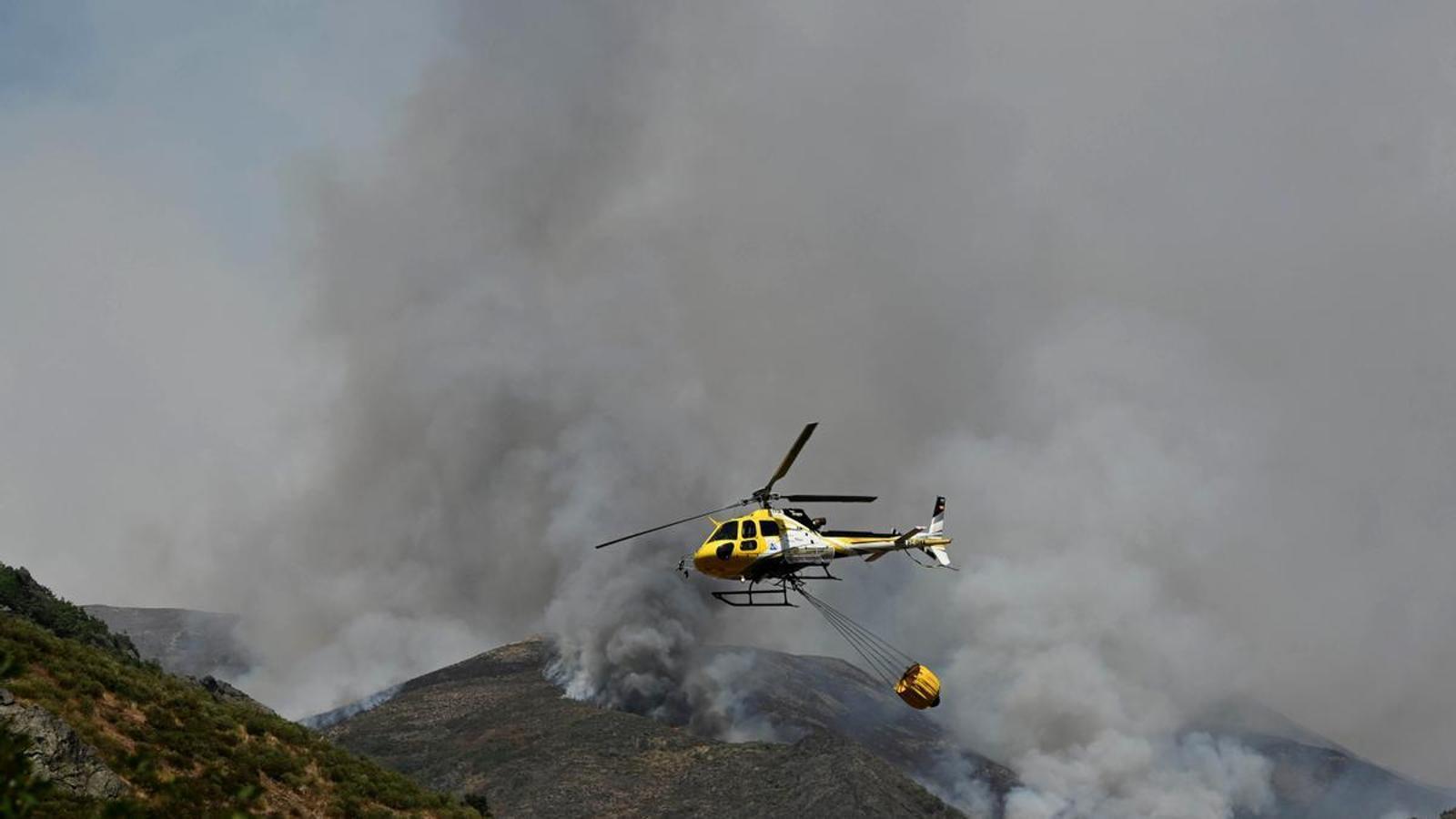Political responsibility for the fires


MadridThe most appropriate way to deal with the clarification of the circumstances that have favored the extension of the Forest fires that have ravaged Spain in the last week, and to establish the corresponding political responsibilities, would be the establishment of a commission of inquiry in the Congress of Deputies. I am aware of the poor experiences of the past and the lack of confidence of a large part of the public in the usefulness of this type of commission, but Parliament should be given another opportunity as the ideal setting, not only to debate these issues, but also to gather all possible information and try to reach objective conclusions.
Many people are now participating in the media, all kinds of professionals and individuals who are providing useful data and information, as well as technical criteria. Many of these voices should be heard in the seat of popular sovereignty, first so that citizen-voters can see and hear both direct testimony and opinions based on scientific knowledge about all the problems that have contributed to the tragedy of the loss of human lives and the burning of thousands of hectares in various parts of the country, especially in the northeast.
This is a general problem – meaning it directly affects us, it is of national scope – and although for practical and political purposes many powers are in the hands of the autonomous communities, a comprehensive response is needed, one that is not the result of a piecemeal analysis of how lives and territories are being protected, or not protected. If the autonomous model is, as has been said so many times, of a federal tendency or inspiration, we have a practical case to test its effectiveness, or to consider possible adjustments. It is senseless and ridiculous that every time there is an emergency situation, the debate is reduced to an exchange of reproaches about who took longer to go to the scene of the tragedy, or who should ask for help from whom, and whether they did so when necessary, or whether they have clung to their powers to avoid confessing a supposed weakness.
It is well understood that the The case of DANA and Carlos Mazón is special, because it is an example of manifest incompetence and unjustifiable resistance to assuming political responsibility. The country's objective should be for the system to function more quickly and efficiently. During the pandemic, there were some attempts to achieve this through the famous "co-governance," an experience that proved insufficient, a victim of the stifling political climate that has gripped the country. It is extremely sad to hear the testimony of so many victims who feel abandoned by the administrations, while the Spanish government and the PP fight over the credit for having gotten France to lend us two Canadair planes, specialized in firefighting.
Institutional Response
The forest fires show us the seriousness of the situation, the lack of foresight, and the devastating effects of being late in defining an effective environmental preservation policy. The commission of inquiry I would like to see established should include not only politicians—from members of the government and regional presidents to mayors and councilors of affected towns—but also farmers, ranchers, forestry engineers, firefighters, commanders of the Military Emergency Unit (UME), and those responsible for the Guà (Gua) in the Ministry of the Interior—and experts on matters related to the preservation of the natural environment, including meteorology and the consequences of climate change.
I don't think the minutes that Congress will likely devote to the parliamentary oversight sessions, in which the government and opposition will focus on arguing about political responsibility for the summer fires, will be of great interest. We've already seen that this week. The leaders who have intervened in the debate have generally done so to exchange accusations and focus the problem on their respective management deficiencies. We won't get very far down this path. What is being done is to shift the political malpractice that has been applied to corruption cases and their necessary clarification to the problem of the treatment of the territory—now devastated in many places.
In the tragedy we are experiencing, a more institutional than partisan response should be achieved. In this sense, over the last week I have heard several comparisons with what happened with the DANA (National Action Plan for the Defense of the National Autonomous Community). These are parallels that do not encourage optimism about the possible contribution of parliamentary bodies—whether state or regional—to establishing objective conclusions about the facts. But there is a crucial difference with the case of the fires and the devastation of the territory. Regarding the DANA (National Investigation Court of Catalonia), a judge—Nuria Ruiz, of the 3rd Court of Catarroja—is making substantial progress in the investigation into the circumstances that resulted in the loss of 228 human lives, in addition to extensive material damage and destruction of infrastructure. However, although some arrests have already been made regarding the forest fires this August, it is unlikely that through judicial action we can obtain clear and comprehensive answers regarding a problem that—as Feijóo, former Galician president, says—has a much broader scope, affecting the entire territory.
For all these reasons, I think it is important to summon Parliament in this case. We will learn about the tweets of the Minister of Transport, Óscar Puente—who has turned the problem of the fires into a prologue to the 2026 election campaign in Castilla y León—through various channels, but the testimony of victims and those affected, and the opinions of specialists, should be made clear in Parliament. Above all, to be able to look to the future with greater confidence. There are places and regions that only make the news when they burn, and their fires of today may also be our ashes tomorrow.
